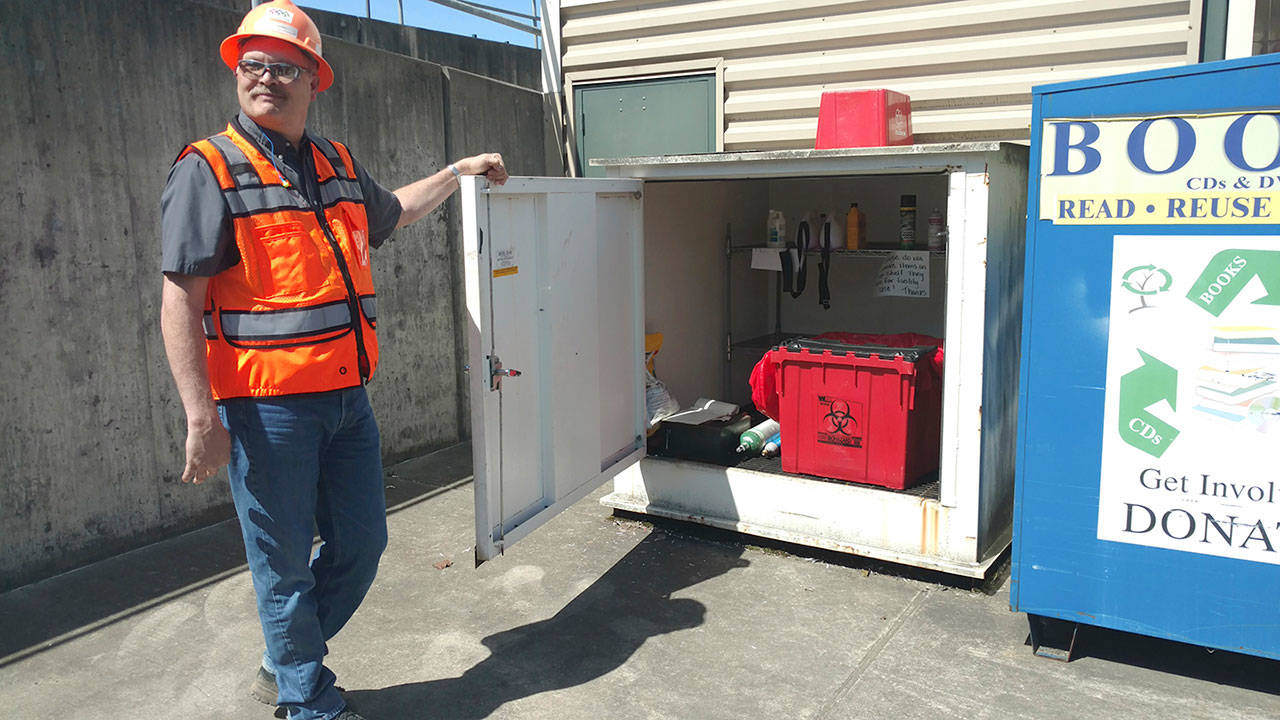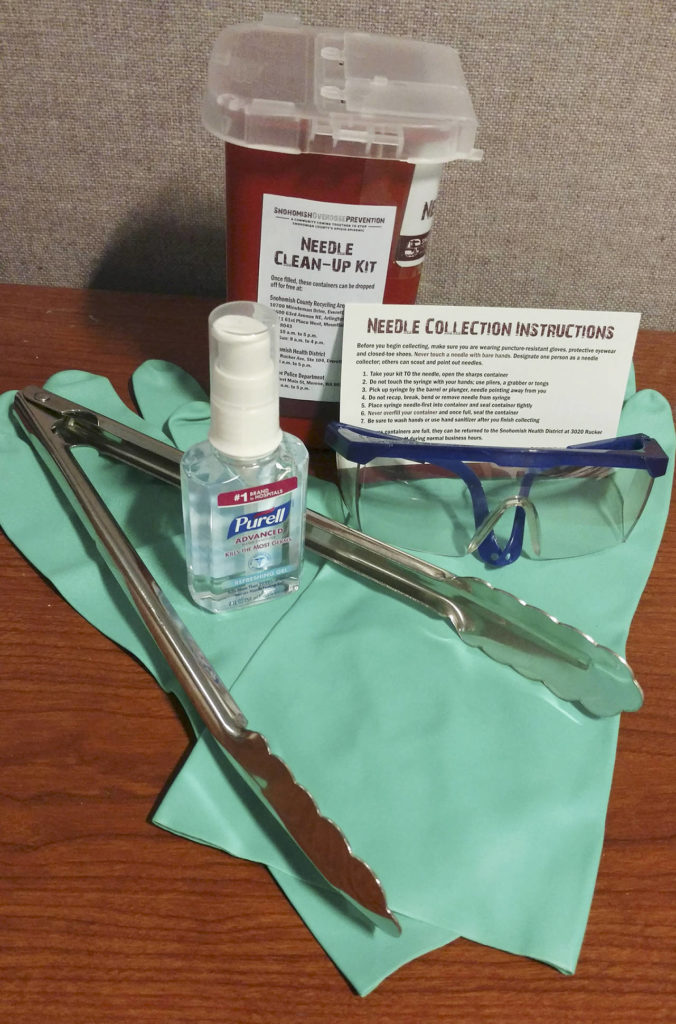EVERETT — A program that provides free kits to help people safely clean up and dispose of needles is set to expand around Snohomish County.
Starting Wednesday, needle clean-up kits are to be available at five locations. New safe disposal sites are being added, as well.
The kits will be at the Snohomish Health District, Everett and Lynnwood city halls, and the Arlington and Monroe police departments. Once full, the sealed sharps containers included with the kits can be dropped off during open hours at the Snohomish County recycling and transfer stations in Everett, Arlington and Mountlake Terrace, and at the Monroe Police Department or the health district.
The kits include a container for syringes, puncture-proof gloves, safety glasses, tongs, hand sanitizer and instructions.
The health district announced the launch of the needle clean-up kits program in September. Within days, the first 50 had been snapped up and a wait list started.
Since September, 800 kits have been given out and thousands of syringes safely disposed of, according to the health district.
There are places where used needles litter parks, sidewalks and wooded areas. Volunteers aim to clean them up, keeping them away from children and others who could be harmed. The decision to provide clean-up kits was in response to volunteer work that already was happening, said Heather Thomas, health district spokeswoman.
“It’s really the community that’s taking part in this,” she said. “They were cleaning up needles. We need to make sure they do it safely.”
The containers in the kits hold 40 to 60 needles. If groups are doing a large clean-up, they can contact the health district to get ones that hold hundreds.
Adding disposal sites for the containers at the county’s recycling and transfer stations is “a natural partnership,” said Dave Schonhard, Snohomish County Solid Waste operations manager. Staff have been trained on proper disposal of needles. Only sealed sharps containers should be brought in. Needles should not be stored, transported or thrown away in other kinds of containers.
The expansion of the program is being done through existing contracts and expenses. As kits are dropped off, workers plan to collect information on where the needles were found. The goal is to gather data that can help identify problem areas and give officials more perspective on the opioid epidemic here.
“One of our biggest problems is getting our minds around the scope of the problem because it’s hidden … It’s in woods, it’s behind closed doors,” county spokesman Kent Patton said.
Cleaning up needles is one way to address the effects of the crisis, but the goal is to “attack it from every angle,” he said. That means focusing on prevention, education, treatment options, and bringing together agencies and organizations to make the best use of resources, he said.
It costs $8 to $10 to put together a kit. The health district plans to continue providing more as long as there is demand, district administrator Jeff Ketchel said.
The kits went from an idea to launching the program in two weeks, he said
“Nothing happens in government in two weeks,” he said. “But this was such a no-brainer idea.”
Scattered syringes are some of the most visible signs of the community’s opioid problem. An October cleanup yielded thousands of needles at the site of a former homeless camp in a wooded area of south Everett.
Anyone cleaning up needles should protect themselves by using sturdy shoes, gloves and eyewear, picking up needles with tongs and storing them in secure containers.
Instructions for using the needle clean-up kits are available online at snohomishoverdose prevention.com/clean-up.
Kari Bray: 425-339-3439; kbray@heraldnet.com.
Where to drop off used kits
Snohomish Health District: 3020 Rucker Ave., Everett
Monroe Police Department: 818 W. Main St.
Recycle and transfer stations at: 10700 Minuteman Drive, Everett; 19600 63rd Avenue NE, Arlington; 21311 61st Place West, Mountlake Terrace.
Transfer station hours: 10 a.m. to 5 p.m. Monday through Friday, 8 a.m. to 4 p.m. Saturday and Sunday
Talk to us
> Give us your news tips.
> Send us a letter to the editor.
> More Herald contact information.


























